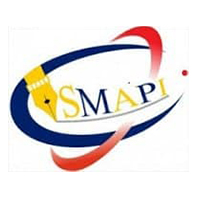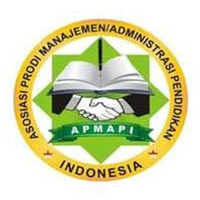EFFECTIVE CLASSROOM MANAGEMENT DURING THE LIMITED FACE-TO-FACE LEARNING PERIOD IN JUNIOR HIGH SCHOOL MEDAN
DOI:
https://doi.org/10.21831/jump.v5i2.60932Keywords:
Limited face-to-face, Classroom management, LearningAbstract
This research addresses the challenges posed by the Covid-19 pandemic to education, particularly the limitations of online learning and the subsequent implementation of limited face-to-face learning. Recognizing the significant impact of these challenges on both teachers and students, the study aims to explore factors influencing the efficiency of classroom management during limited face-to-face learning. Focusing on 8th-grade students at SMP Negeri 2 Percut Sei Tuan, the research utilizes a quantitative approach, employing a Likert scale questionnaire distributed to 15 students via Google Form. The key findings reveal a deficiency in creating a conducive learning climate (32% - Not good), with challenges stemming from limited physical interaction, technological barriers, and difficulties in maintaining student engagement. However, organizing the study room received positive responses (67.5% - Good), indicating effective physical layout and orderliness contributing to a conducive learning atmosphere. On the other hand, managing the interaction of teaching and learning activities scored lower (30% - Not good), highlighting challenges related to varied teaching methods, learning media, and active student participation. In conclusion, the research underscores the necessity for improvements in the classroom management process within the limited face-to-face learning context. The findings provide valuable insights for enhancing teaching strategies, fostering a more conducive learning environment, and ultimately contributing to the successful attainment of learning objectives within the constraints of limited face-to-face interactions. The study's implications extend to educators, researchers, and policymakers seeking to optimize the learning experience in the unique circumstances brought about by the pandemic.References
Abdulah, M. K., Fauzi, I. K., & Sudrajat, A. (2022). Manajemen Strategi Pengelolaan Kelas Dalam Meningkatkan Kualitas Layanan Pendidikan. Jurnal Simki Pedagogia, 5(2), 200-208.
Abwandi, D., Anjani, D. P., Apriliyani, D., Firdaus, M. Y., & Mustikawati, R. (2022). Pengembangan Manajemen Pembelajaran Tatap Muka Terbatas di SD Negeri Ketapang. ANWARUL, 2(1), 66-76.
Almusaed, A., Almssad, A., Yitmen, I., & Homod, R.Z. (2023). Enhancing Student Engagement: Harnessing "AIED"'s Power in Hybrid Education"”A Review Analysis. Educ. Sci, 13(7), 1-24.
Astuti. (2019). Manajemen Kelas yang Efektif. Adaara: Jurnal Manajemen Pendidikan Islam, 9(2), 892-907.
Basar, Z. M., Mansor, A. N., Jamaludin, K. A., & Alias, B. S. (2021). The Effectiveness and Challenges of Online Learning for Secondary School Students - A Case Study. Asian Journal of University Education, 17(3), 119-129.
Brophy, J. E. (2006). History of research on classroom management. In C. M. Evertson & C. S. Weinstein (Eds.), Handbook of Classroom Management: Research, Practice, and Contemporary Issues. Lawrence Erlbaum Associates.
Centre for Education Statistics and Evaluation. (2020). Classroom Management-Creating and Maintaining Positive Learning Environments. Sydney: NSW Department of Education.
Creswell, J. W., & Creswell, J. D. (2017). Research Design: Qualitative, Quantitative, and Mixed Methods Approaches. Sage Publications.
Darling-Hammond, L., & Cook-Harvey, C. M. (2018). Educating the Whole Child: Improving School Climate to Support Student Success. Palo Alto, CA: Learning Policy Institute.
Dayagbil, F. T., Palompon, D. R., Garcia, L. L., & Olvido, M. M. J. (2021). Teaching and Learning Continuity Amid and Beyond the Pandemic. Frontiers in Education, 6, 1-12.
Dornyei, Z., & Muir, C. (2019). Creating a Motivating Classroom Environment: Second Handbook of English Language Teaching. Switzerland: Springer International Handbooks of Education.
Eisenman, G., Edwards, S., Cushman, C. A. (2015). Bringing Reality to Classroom Management in Teacher Education. Spring, 39(1), 1-12.
Fitria, S. E., & Ariva, V. F. (2018). Analisis Faktor Kondisi Ekonomi Tingkat Pendidikan dan Kemampuan Berwirausaha Terhadap Kinerja Usaha Bagi Pengusaha Pindangan di Desa Cukanggenteng. Jurnal Manajemen Indonesia, 18(3), 197-208.
Fraenkel, J. R., Wallen, N. E., & Hyun, H. H. (2018). How to design and evaluate research in education. McGraw-Hill Education.
George, I. N. (2017). Effective Classroom Management and Students' Academic Performance In Secondary Schools in Uyo Local Government Area of Akwa Ibom State. Research in Pedagogy, 7(1), 43-56.
Goss, P., & Sonnemann, J. (2017). Enganging Students: Creating Classrooms that Improve Learning. Australia: Gratan Institute.
Gultom, E., & Saun, S. (2016). The Role of Classroom Management in Creating an Effective English Learning. Journal of English Language Teaching, 5(1), 18-24.
Gunersel, A. B., Mason, B. A., Wills, H. P., Caldarella, P., & Williams, L. (2023). Effective Classroom Management in Middle Level Schools: A Qualitative Study of Teacher Perceptions. Research in Middle Level Education Online, 46(8), 1-13.
Hans, A., & Hans, E. (2017). Classroom Management is Prerequisite for Effective Teaching. International Journal of English and Education, 6(2), 273-283.
Hollister, B., Nair, P., Hill-Lindsay., Chukoskie, L. (2022). Engagement in Online Learning: Student Attitudes and Behavior During COVID-19. Frontiers in Education, 7(85), 1-16.
Johnson, A. M., Jacovina, M. E., Russell, D. G., & Soto, C. M. (2016). Challenges and Solutions when Using Technologies in the Classroom: Adaptive Educational Technologies for Literacy Instruction. UK: Routledge.
Manurung, G. A., Simanjuntak, L.A., & Sihombing, R. A. (2021). Misconceptions on The Concept of Photosythesis and Plant Respiration For Class VIII at SMP Negeri 27 Medan in Science Learning. Indonesian Science Education Research (ISER), 3(2), 12-19.
Marzano, R. J., Marzano, J. S., & Pickering, D. (2003). Classroom Management That Works: Research-Based Strategies for Every Teacher. ASCD.
Monteiro, V., Carvalho, C., & Santos, N. N. (2021). Creating a Supportive Classroom Environment Through Effective Feedback: Effects on Students' School Identification and Behavioral Engagement. Front. Educ. 6:661736, 1-14.
Mubarok, R. (2022). Guru Sebagai Pemimpin di Dalam Kelas Pada Pembelajaran Tatap Muka Terbatas (PTMT). Ensiklopedia: Jurnal Pendidikan dan Inovasi Pembelajaran Saburai, 2(01), 19-32.
Nurrita, T. (2018). Pengembangan media pembelajaran untuk meningkatkan hasil belajar siswa. MISYKAT: Jurnal Ilmu-ilmu Al-Quran, Hadist, Syari'ah dan Tarbiyah, 3(1), 171.
Nyabando, T. (2019). Second-Grade Students' Perceptions of Their Classrooms' Physical Learning Environment. Electronic Theses and Dissertations. Paper 3660.
Octavia, S. C., Sihombing, R. A., Destine, K. T., & Hutagalung, J. F. (2022). Analysis of Obstacles on Limited Face-To-Face Learning During the Covid-19 Pandemic Junior High School In Medan. Tarbiyah: Jurnal Ilmu Kependidikan, 11(1),
Oliver, R. M., & Reschly, D. J. (2007). Effective Classroom Management: Teacher Preparation and Professional Development. Washington DC: National Comprehensive Centre for Teaching Quality.
Panggabean, F. T. M., Simanjuntak, L. A., Sihombing, R. A., Octavia, S. C., Tambunan, J. B. (2023). Analysis of 7th-Grade Students' Misconceptions of Acid-Base. J-PEK (Jurnal Pembelajaran Kimia), 8(1), 1-7.
Pimentel, J. I. (2010). A note on the Usage of Likert Scaling for Research Data Analysis. USM R&D, 18(2), 109-112.
Prasetyo, Y., Irvan, S., & Atmam, A. (2022). Face-To-Face Learning Methods Are Limited in Overcoming Students' Learning Difficulties During The Pandemic Covid-19. ETDC: Indonesian Journal of Research and Educational Review , 1(3), 286-296.
Rands, M. L., & Gansemer-Topf. (2017). The Room Itself Is Active: How Classroom Design Impacts Student Engagement. Journal of Learning Spaces, 6(1), 26-33.
Rigal-Aragón. (2020). What is Analytical Method: Teaching Language and Literature on and off-canon. Pennsylvania: IGI Global.
Rofiyah, A. (2022). Problematika Pembelajaran Tatap Muka Terbatas (PTMT) dalam Menulis Resensi Novel pada Siswa Kelas XII SMAN Ploso Jombang. Journal of Education and Learning Sciences, 02(01), 1-22.
Selvaraj, A., Vishnu, R., Nithin, K. A., Benson, N., & Mathew, A. J. (2021). Effect of Pandemic Based Online Education on Teaching and Learning System. International Journal of Educational Development, 85, 1-13.
Setiyowati, L. N. (2017). Classroom Interaction in Teaching Reading at Junior High School 3 Kediri in The Academic Year 2016/2017. Simki-Pedagogia, 02(01), 1-6.
Siebber-Nagler, K. (2016). Effective Classroom-Management & Positive Teaching. English Language Teaching, 9(1), 163-172.
Sihombing, R. A., Manurung, G. A., & Simanjuntak, L. A. (2022). Analysis Implementation of Technological Pedagogical Content Knowledge by Science Teachers Through Distance Learning at Junior High School In Medan. Jurnal Pendidikan Matematika dan IPA, 13(2), 214-230.
Simatupang, H., Siregar, E. H., Sihombing, R. A., & Tanjung, M. Y. (2023). Profile of Technology Pedagogical Content Knowledge-21 (TPACK21) on Pre-Service Science Teacher in Microteaching Course. Sciendo, 2022, 764-771.
Sugiarto. (2022). Implementing of Limited Face-to-Face Learning Policy in Schools. Al-Ishlah: Jurnal Pendidikan, 14(2), 2197-2204.
Sugiyono. (2017). Metode Penelitian Kuantitatif, Kualitatif, dan R&D. Bandung: Alfabeta.
Suharsimi, A. (2017). Pengembangan Instrumen Penelitian dan Penilaian Program. Yogyakarta: Pustaka Pelajar.
Wati, J. U. M., Rikza, Q., & Rahmawati, A. D. (2021). Pengelolaan Kelas Pembelajaran Tatap Muka Terbatas Pada Masa Pandemi Di Kelas VII G MTS Negeri 4 Ngawi. Indonesian Journal of Education and Learning Mathematics, 2(1), 14-26.
Young, J. C., Rose, D. C., Mumby, H. S., Capistros, F. B., Derrick, C. J., Finch, T., Garcia, C., Home, C., Marwaha, E., Morgans, C., Parkinson, S., Shah, J., Wilson, K. A., Mukherjee, N. (2017). A Methodological Guide to Using and Reporting on Interviews in Conservation Science Research. Methods in Ecology and Evolution, 9(1), 10-19.
Yulianengsih, N. L. (2023). Teacher Creativity in Classroom Management to Improve Students' Learning Ability. Attadrib: Jurnal Pendidikan Guru Madrasah Ibtidaiyah, 6(1), 57-66.
Downloads
Published
How to Cite
Issue
Section
License
Authors who publish with this journal agree to the following terms:
- The copyright of the accepted for publication articles shall be assigned to Jurnal Manajemen Pendidikan (JuMP) as the publisher of the journal. The intended copyright includes the rights to publish articles in various forms (including reprints).
- Jurnal Manajemen Pendidikan (JuMP) maintain the publishing rights of the published articles.
- Authors are permitted to republish or disseminate published articles by sharing the link/DOI of the article at Jurnal Manajemen Pendidikan (JuMP). Authors are allowed to use their articles for any legal purposes deemed necessary without written permission from Jurnal Manajemen Pendidikan (JuMP) with an acknowledgment of initial publication to this journal.











